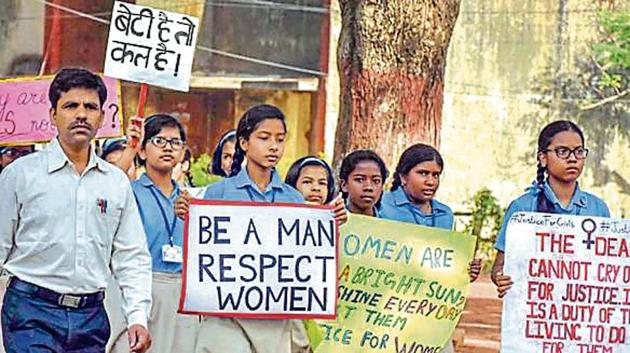Will death penalty for rape of children help reduce crime?
Ever since the Centre invoked the law, it has attracted intense criticism from child activists, human rights organisations and the intelligentsia over the futility of awarding the death penalty to child rapists
On April 22, India announced the death penalty for those convicted of raping girls below the age of 12, joining a select group of countries that have a capital punishment for such a crime. The government’s alacrity in amending the law can be attributed to the massive national outrage over the brutal rape of two young girls (and the murder of one) in separate incidents in Unnao, Uttar Pradesh and Kathua, Jammu and Kashmir. Soon after, the Union women and child development minister announced her ministry has moved a proposal to amend the law, seeking the death penalty for child rapists. Here is all you need to know about the Criminal Law (Amendment) ordinance, 2018 promulgated on Sunday.

Issue
Over the years, there has been a spurt in crime against children. According to the National Crime Records Bureau, in 2016 (the latest period for which data is available), 93,344 cases of crimes against children were registered across India. There has also been an increase in sex crimes against children. To address this, the government had passed the Protection of Children from Sexual Offences (POCSO) Act in 2012, with the specific aim of addressing sexual offences against those below 18 years of age. The maximum punishment under POCSO is for aggravated sexual assault on minors, punishable with up to 10 years in jail (and can extend to imprisonment for life in some cases). Though the Criminal Law (Amendment) Act, 2013 prescribes the death penalty to a convict in sexual assault that leads to the death of the victim or causes the victim to be in a persistent vegetative state, there was no specific provision pertaining to child rapists. There have previously been demands for the death penalty for child rapists, but the clamour for this grew in the aftermath of the Kathua incident.
Significance
Following the government’s decision, an insertion will be made in section 376 of Indian Penal Code providing for death penalty for rape of a girl below 12 years and in case of gang rape of a girl below 16 years, death penalty for all the rapists. Along with the IPC, Section 42 of the POCSO Act will also be amended to allow the court to pronounce death penalty for those raping children below 12 years. In case of rape of a girl under 16 years, minimum punishment has been increased from 10 years to 20 years, extendable to imprisonment for life. The punishment for gang rape of a girl under 16 years of age will have a minimum punishment of imprisonment for life. Recently, the Rajasthan government approved a bill seeking death penalty for those convicted of raping girls under 12 years of age. Two other BJP ruled states — Madhya Pradesh and Haryana — have also given the go ahead for a similar law. According to National Law University Delhi’s Centre on the Death Penalty, globally 14 countries have death penalty law for child rapists.
The Debate
Ever since the Centre invoked the law, it has attracted intense criticism from child activists, human rights organisations and the intelligentsia over the futility of awarding the death penalty to child rapists.
Amnesty International and other activists have called the decision as “knee-jerk” reaction that diverts attention from the poor implementation of laws on rape and child protection. Quoting studies, Amnesty said most perpetrators are “known” to child victims and introducing the death penalty in such circumstances will only silence and further endanger children. Activists say that instead of acting as a deterrent the stringent law could lead to the accused killing the victim after committing rape.
The government, on its part, has defended the move and said such heinous crime calls for effective deterrence and will go a long way in instilling a sense of security among women, especially young girls.






